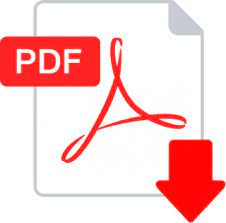Cybercrime Dalam Manga Summer Wars
DOI:
https://doi.org/10.34010/js.v10i2.5727Abstract
Abstract
The purpose of this study was to analyze the type of cybercrime in the manga Summer Wars by Iqura Sugimoto. This research is a library research using descriptive analysis research method. The primary data of the research are 14 illustration that displays cybercrime from manga Summer Wars. Primary data collection techniques are carried out through observation and note-taking techniques. The result showed that according to the Cybercrime theory by Marco Gercke (2012), that the type of cybercrime that is occurring in the Summer Wars manga are illegal access, wrong use of program, attack against system, identity theft, and attack against critical infrastructure.
Keywords: Cybercrime; Marco Gercke.
Abstrak
Penelitian ini bertujuan untuk mengetahui dan mengidentifikasi jenis tindak kriminal Cybercrime pada Manga Summer wars karya Iqura Sugimoto. Metode penelitian yang digunakan adalah deskriptif analisis. Data primer penelitian berupa 14 ilustrasi gambar yang menunjukkan tindakan cybercrime dari manga Summer Wars. Teknik pengumpulan data primer dilakukan melalui teknik simak dan teknik catat. Temuan penelitian menunjukkan bahwa ditinjau dari teori cybercrime oleh Marco Gercke (2012), jenis- jenis Cybercrime yang terjadi pada Manga Summer Wars adalah akses ilegal, penyalahgunaan program, serangan terhadap sistem, pencurian identitas, dan penyerangan terhadap infrastruktur penting.
Kata Kunci: Cybercrime; Marco Gercke
Downloads
Published
Issue
Section
License
- Authors retain copyright and grant the journal right of first publication with the work simultaneously licensed under a Creative Commons Attribution License that allows others to share the work with an acknowledgement of the work's authorship and initial publication in this journal.
- Authors are able to enter into separate, additional contractual arrangements for the non-exclusive distribution of the journal's published version of the work (e.g., post it to an institutional repository or publish it in a book), with an acknowledgement of its initial publication in this journal.
- Authors are permitted and encouraged to post their work online (e.g., in institutional repositories or on their website) prior to and during the submission process, as it can lead to productive exchanges, as well as earlier and greater citation of published work (See The Effect of Open Access)











.jpg)

